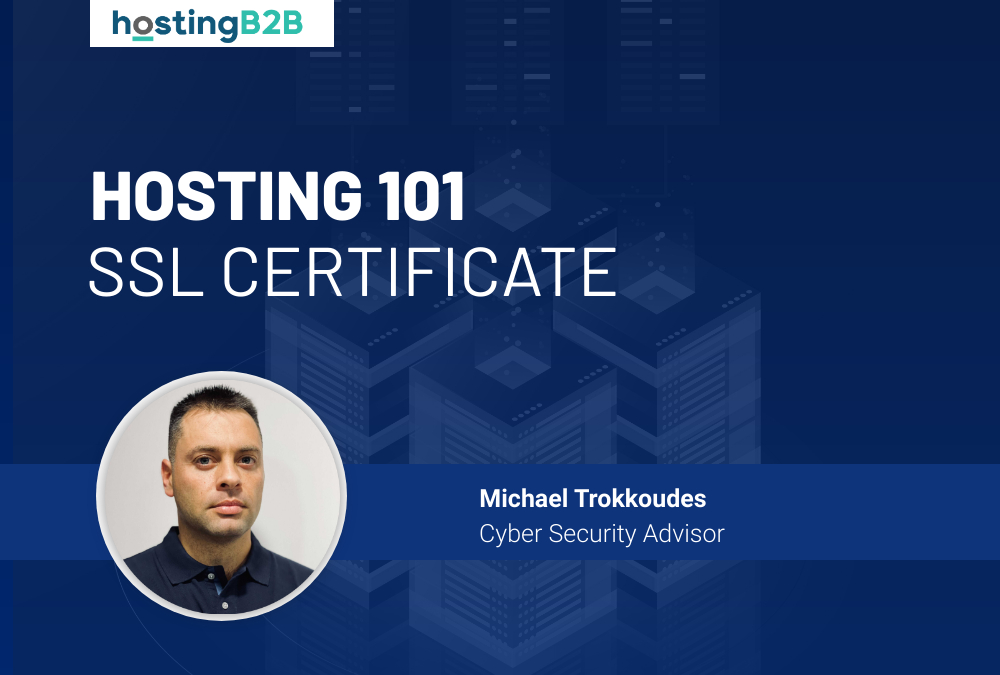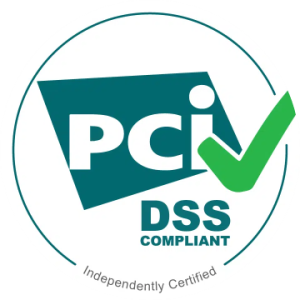


SSL Certificates
SSL Certificates are important for securing connections between your existing or future clients, and your business websites!
But what is SSL all about actually?
Well, SSL or more commonly called TLS nowadays, is a protocol for encrypting Internet traffic and verifying server identity, containing the website’s public key and the website’s identity, along with related information. Any website with an HTTPS web address usesSSL/TLS. This means that your business is secure and overall gains confidentiality, integrity and authenticity over your connections.
Why do we need an SSL certificate?
The answer is above. Lets dig in for a while. A website needs an SSL certificate in order to keep user data secure, verify ownership of the website, prevent attackers from creating a fake version of the site, and gain user trust.
How it this done?
Firstly by encrypting
SSL/TLS encryption is possible because of the public-private key pairing, that SSL certificates facilitate. Clients (such as web browsers) get the public key necessary to open aTLS connection from a server’s SSL certificate.The primary reason why SSL is used is to keep sensitive information sent across the Internet encrypted so that only the intended recipient can access it. This is achieved because the information becomes unreadable to everyone except for the server you are sending the information to. This protects it from hackers and identity thieves
Secondly by authenticating
SSL certificates verify that a client is talking to the correct server that actually owns the domain. Is this so important? Actually, it is. Your customers will often be sending information through several servers. Any of these could pretend to be your website and trick your users into sending them personal information
Can I do it by myself?
Of course, you can do it. Anyone can create their own SSL certificate by generating a public-private key pairing and including all the information mentioned above. But With self-signed certificates, there’s no outside certificate authority to verify that the origin server is who it claims to be
Hey, what is a certificate authority (CA)?
It is a trusted third party, that generates and gives out SSL certificates.The CA willalso digitally sign the certificate with their own private key, allowing client devices to verifyit as an SSL certificate.
And here is the big question. Do I need it and why do I have to pay for it?
Well, yes you do need it. An SSL certificate is no longer a luxury; it’s an out and out necessity nowadays. In 2014, Google made changes to its algorithm in order to give the upper hand toHTTPS-enabled websites.
This has been evident in various studies conducted by SEO experts around the world. 2018 onwards, Google has decided to flag the websites which do not have an SSL/TLS Certificate installed on their website. Failing to comply with this, most popular web browsers like Google, Chrome & Firefox Mozilla, will give a warning message of ‘Not Secure’ on the URL bar. If you own a company, you wouldn’t want this to happen,for sure.
Do you have to pay for it?
Most, but not all, CAs will charge a fee for issuing a certificate. You can always use letsencrypt.org for free and securely, but what would happen if something went wrong? You would feel more secure if you knew that a warranty is available.
Most of them offer warranty or “peace of mind” just in case the SSL security from that certificate experiences a failure that results in a loss/damage to your business. Essentially a form of insurance against the unlikely event. Wouldn’t you also prefer purchasing a certificate for 15 Euros annually? I will leave that for you to decide.
Furthermore, let’s talk about three basic types of SSL Certificates available from commercial CAs:
- Domain Validation (DV)
- Organization Validation (OV)
- Extended Validatio (EV)
Let’s Encrypt can only provide DV certificates. While this may be enough for many sites, if you are looking for a higher level of verification,you will have to purchase a premium type of SSL Certificate, like those mentioned above. Lastly Premium SSL Certificates come with a trust seal that you can place on your website’s layout. Let’s Encrypt certificates do not offer any type of site seal. This method has been proven to increase visitor confidence and traffic.
It is critical that you properly use SSL on all websites.
Proper use of SSL certificates will help protect your customers, help protect you, and help you to gain your customers trust and sell more.
For smaller personal sites and blogs, Let’s Encrypt is a great choice. But if you are seeking of a premium SSL Certificate, because you’re the owner of enterprise-level sites, that handle sensitive data, the benefits are unbeatable and incomparable. While Let’s Encrypt can provide SSL protection it can’t offer the comprehensive coverage and reliability provided by a premium SSL Certificate. If you want to ensure the maximum level of security and protection purchasing a certificate is a must.
Same provider more options :
The post A guide to SSL Certificates: Why your website needs one. appeared first on HostingB2B.











